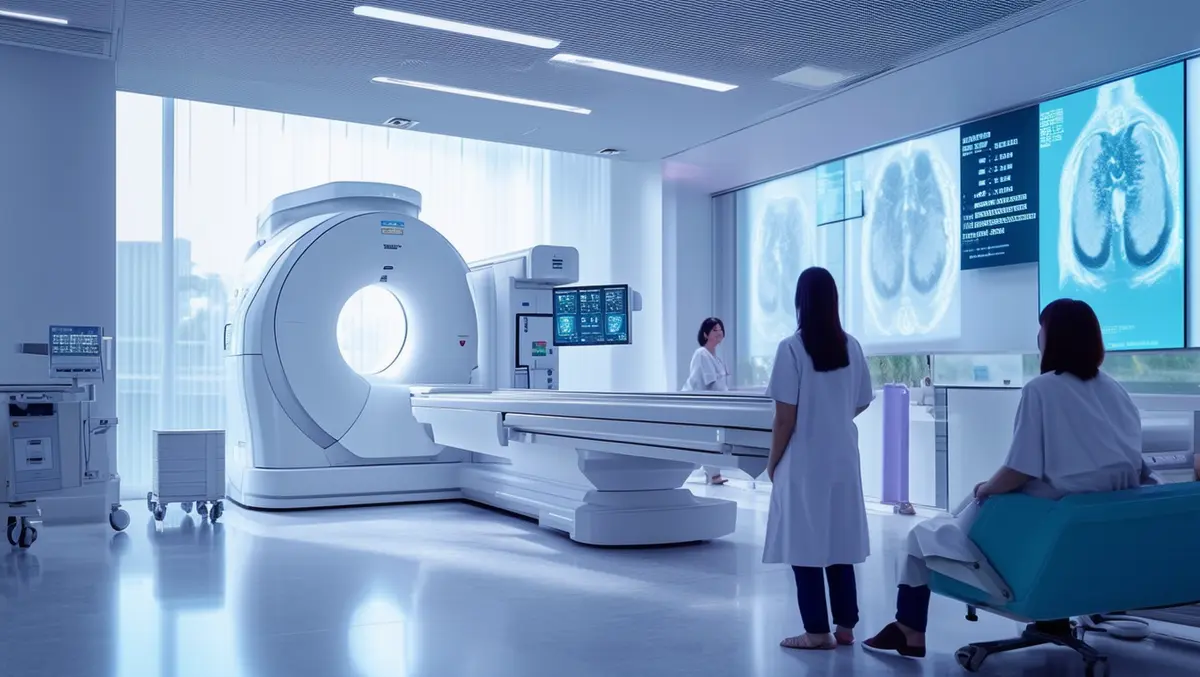
SATA CommHealth uses AI for advanced mammogram screening
SATA CommHealth in Singapore has successfully implemented the advanced artificial intelligence (AI) programme, Lunit, for mammogram screening reports.
After a successful pilot test, the diagnostic imaging team has utilised this technology for several months. The goal is to improve the sensitivity and accuracy of mammography reporting, significantly reducing waiting times and alleviating patient anxiety and stress.
The Lunit INSIGHT MMG programme has been integrated into SATA CommHealth's regular mammogram screening process, leveraging AI to assist in analysing and interpreting mammogram images with a reported 96% accuracy in detecting breast cancer. Despite this advancement, the uptake rate for breast cancer screening in Singapore remains low, partly due to fear of detection and concerns about survival outcomes, as reported by The Straits Times.
This AI technology aims to enhance the efficiency and accuracy of breast cancer detection by providing radiologists with automated tools to identify potential abnormalities. The primary objective is to improve early detection, which is crucial for better patient outcomes. By integrating Lunit AI, SATA CommHealth seeks to enhance radiologists' productivity compared to traditional methods that can sometimes lead to oversight or misinterpretation of early signs of cancer.
"By integrating Lunit INSIGHT MMG into our mammogram screening process, we have set a new standard for breast cancer detection. This advanced AI technology not only enhances the accuracy of our diagnoses but significantly streamlines our efficiency and saves us considerable time. The analysis results are intuitive and easy to understand, significantly speeding up the reading process for each mammogram," said Dr Cheryl, SATA CommHealth Medical Director.
The AI technology within Lunit INSIGHT MMG assists radiologists in interpreting breast images, such as mammograms, increasing diagnostic accuracy and benefiting patients. Early detection facilitated by AI can lead to complete cures in many cases of breast cancer. The AI's enhanced sensitivity in identifying early signs, such as pleomorphic microcalcifications, allows for timely intervention and potentially life-saving treatments.
Key benefits include enhanced detection capabilities, seamless triage of regular cases, improved reading performance of general radiologists, early diagnosis, and support for decision-making on BI-RADS 3 and 4 cases. The technology also improves diagnostic accuracy for dense breasts, overcoming challenges posed by dense breast tissue to ensure accurate diagnoses.
SATA CommHealth also plans to invest in ongoing training and development for its diagnostic imaging team to maximise the benefits of AI technology. Additionally, the organisation is exploring partnerships with other healthcare institutions to advance the capabilities and applications of AI in healthcare collaboratively.
This service is available at SATA CommHealth's main diagnostic imaging centres and selected clinics across Singapore, ensuring broader access to advanced screening capabilities to improve patient outcomes.


